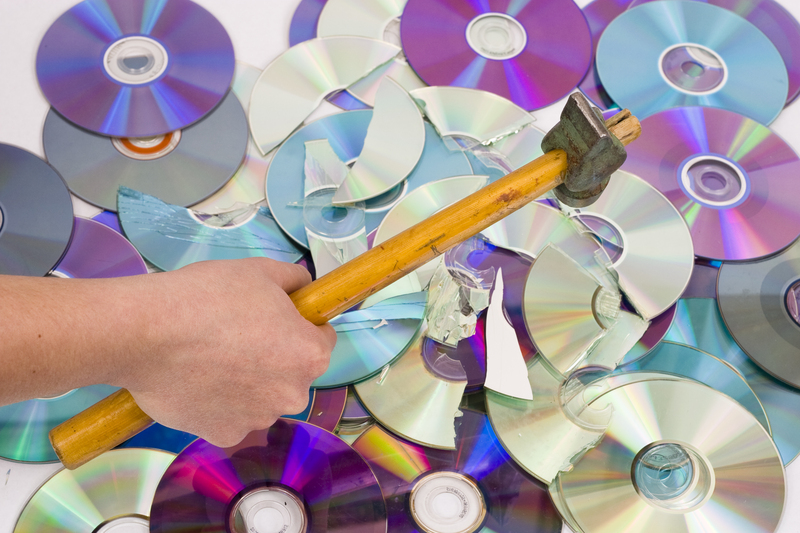Stay Under Budget When Dealing with Bulky Waste Items: A Complete Guide
Dealing with bulky waste items can be a daunting and expensive task for households and businesses alike. Whether it's an old sofa, broken appliances, construction debris, or large garden waste, disposing of oversized trash requires proper planning and smart strategies to stay within budget. In this comprehensive guide, you'll discover cost-effective, sustainable, and convenient ways to manage bulky waste items while keeping your expenses under control.
Understanding Bulky Waste Items and Disposal Challenges
Bulky waste items, sometimes known as large unwanted items or oversized trash, are objects too big for regular household waste collection. These include furniture, mattresses, white goods (refrigerators, washing machines), and other items not easily bagged or carried out with weekly trash.
- Furniture: Sofas, beds, wardrobes, tables, chairs
- Appliances: Fridges, ovens, washing machines, air conditioners
- Mattresses & Beddings: Bed frames, box springs, old mattresses
- Electronics: TVs, computers, printers
- Construction Debris: Wood, plasterboard, tiles, old flooring
- Large garden waste: Branches, logs, big bags of leaves
Removing these items can be expensive if not done thoughtfully, as bulky waste disposal services often charge by weight, volume, or per item. Local regulations may also affect what you can dispose of and how, making it crucial to plan ahead to avoid unnecessary costs.

Why Proper Bulky Waste Management Saves You Money
Properly handling oversized waste items not only keeps expenses in check but also benefits the environment. Here are just a few reasons why investing effort in smart disposal can pay off:
- Avoids fines for illegal dumping or improper disposal
- Reduces landfill fees by diverting recyclable or reusable items
- Minimizes transport costs by consolidating and efficiently removing items
- Supports local charities or social enterprises through donations
The True Cost of Bulky Waste Removal
While it may seem simple to just "get rid" of old furniture or appliances, disposal costs can quickly add up:
- Municipal bulky waste collection fees (per item or per load)
- Skip hire or dumpster rental
- Private junk removal services
- Transport to recycling centers or landfills (fuel, time, vehicle)
- Special fees for hazardous or electronic waste
With a little forethought, however, you can stay under budget when dealing with bulky waste items and even give your unwanted goods a second life.
Effective Strategies to Stay Under Budget on Bulky Waste Disposal
1. Audit and Sort Your Bulky Waste First
Before you book a collection or head to the tip, sort all your large rubbish into categories:
- Reusable items: Still-fuctioning appliances or clean furniture
- Recyclable materials: Metals, woods, electronics
- Hazardous waste: Fridges, TVs, paint, chemicals
- General landfill waste: Broken, unfixable items
A thorough audit helps eliminate unnecessary removal costs and identifies donation or recycling opportunities, reducing the volumes heading to landfill (and keeping your bill lower).
2. Take Advantage of Local Free or Discounted Collection Services
Many municipalities offer free or discounted bulky waste pick-up for residents. These schemes often require advance booking and have restrictions on quantity, item type, and collection frequency.
- Check your city or council's waste management website for details
- Combine your collection with neighbors ("bulky waste day" community pickups can save everyone money)
- Book well ahead--slots fill quickly, especially in spring/autumn cleaning seasons
By maximizing municipal services, you minimize private disposal costs and ensure items are handled legally and responsibly.
3. Donate or Sell Usable Bulky Items
Many large items are still in good working order and can be donated to:
- Charity shops and furniture banks
- Non-profits serving low-income families
- Online community platforms (Freecycle, Facebook Marketplace, Craigslist)
Donation keeps items out of landfill and may even earn you a tax deduction. Selling second-hand goods, meanwhile, can offset your overall waste removal costs.
4. Recycle Responsibly for Cheaper Disposal
Many recycling centers or "Household Waste Recycling Centers" accept certain bulky items for free or at reduced rates. Commonly accepted items include:
- Appliances (sometimes with a small fee for fridges/freezers)
- Metals, woods, mattresses
- Electronics (WEEE waste)
- Carpets, flooring
Check ahead for your local center's rules on bulky waste recycling. Proper sorting at home can help you benefit from lower fees.
5. DIY Transport Can Save Money--If Done Right
If you have access to a large car, van, or trailer, consider self-hauling your items to the recycling center. Be sure to:
- Borrow or rent a suitable vehicle if needed
- Check weight and size restrictions at your local site
- Enlist family or friends for safe lifting
Even with fuel and rental costs, DIY may come in cheaper than hiring a skip or using a private collection service, especially when you have several items to remove.
6. Share Disposal Costs with Neighbors
Many junk removal or skip hire services charge less per household if you split the cost with others. Organizing a neighborhood "bulky waste cleanup weekend" can lead to substantial savings for everyone involved.
7. Choose Skip Hire or Private Removal Wisely
When you have a large volume that can't be handled by municipal pickup, research local skip or private junk removal companies.
- Compare reviews, prices, and size options--don't pay for more space than you need.
- Ask about recycling rates or landfill diversion (it can keep costs down for recyclable loads).
- Check for per-load versus per-item pricing to ensure the best value.
- Choose licensed waste carriers only.
Some companies offer discounts for booking online, off-peak times, or flexible collection dates.
Common Mistakes That Break the Bulky Waste Budget
- Leaving items until the last minute: Emergency clearances are more expensive
- Mixing waste streams: Fines for including hazardous or non-allowed items
- Paying for unnecessary skip size: Overestimating space required
- Ignoring free community options: Missing out on council pickups or online giveaways
- Not checking for item-specific disposal fees: E-waste, mattresses, or refrigerants often have surcharges
Sustainable and Budget-Friendly Bulky Waste Solutions
Upcycling and Repurposing
Get creative! Old furniture can often be refurbished or converted to new uses. DIY upcycling not only keeps items out of landfill but can save you money compared to buying new. Many online tutorials offer tips to turn old doors into tables, beds into benches, and more.
Community Waste Days and Special Collection Events
Check if your city offers seasonal "community clean-up days" for free or low-cost disposal of large waste items. These events are a great way to responsibly remove multiple items at once for minimal cost.
Hire a Van and Split the Cost
For apartment blocks or close-knit communities, pooling resources (hiring a van and a couple of helpers) helps keep transportation costs low and ensures everyone benefits from bulk pricing.
Bulk Buy Disposal Bags or Permits
If your local authority requires buying permits or special bags for disposal, purchasing in bulk or sharing with neighbors can often reduce the price per item.
Negotiate with Private Removal Companies
Don't be afraid to request quotes from multiple providers and ask if prices are flexible. Honest, up-front negotiation can result in discounts, especially if you're a repeat customer or have multiple items.
Practical Tips for Managing Bulky Waste Removal on a Tight Budget
- Plan ahead and schedule early: Gives you time to find free or low-cost options
- Downsize before disposing: Can parts be disassembled, sold, or recycled separately?
- List items on "free pickup" marketplaces: Let others collect unwanted goods for free
- Get quotes from several removal companies: Price, recycling rates, and professionalism matter
- Always use licensed and insured providers: Avoid fines, scams, or environmental damage

Bulky Waste Collections: Cost Examples and Case Studies
Municipal Free Pickup
Jane, a homeowner in London, booked her council's two free large item pickups for the year. She timed her spring cleaning to coincide and managed to remove a sofa and old refrigerator at no charge, saving over ?70 compared to using a private service.
Skip Hire vs. Community Cleanup
A group of five households in Manchester rented a single large skip and coordinated their disposals over one weekend. By splitting the ?200 fee, each household paid just ?40--saving 50% compared to separate bookings.
Donation Success Story
A local charity collected five good-quality desks from a closing small business for free, saving the company over $300 in junk hauling fees and providing valuable furniture to families in need.
Conclusion: Stay Savvy and Eco-Friendly with Bulky Waste Removal
Staying under budget when managing bulky waste items requires a strategy that combines early planning, community collaboration, and knowledge of local resources. From utilizing municipal collections and donating usable goods, to recycling and sharing disposal costs, there's no need to let oversized junk break the bank.
Remember, every item that is reused or recycled is one less piece of waste heading into landfill--and one less line on your disposal bill. By following the steps outlined in this article, you can stay under budget when dealing with bulky waste items while also protecting your community and the environment.
Key Takeaways
- Audit, sort, and plan your bulky waste removal in advance
- Take advantage of free, council, or non-profit disposal options
- Donate or sell usable items to communities in need
- Recycle wherever possible to reduce cost and landfill usage
- Pool resources with neighbors to benefit from shared rates
- Always use reputable, insured disposal professionals
With these practical tips, you can manage the challenge of large waste items on a tight budget and make a positive environmental impact in the process.
```